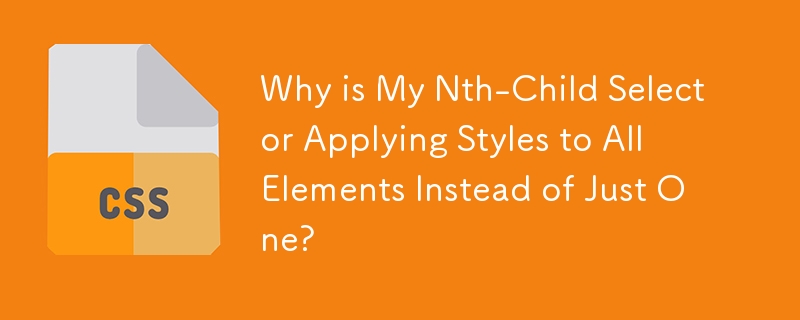

The nth-child selector is a powerful tool for targeting specific elements within a group of siblings. However, it is important to understand its limitations to effectively use it.
Consider the following situation where nth-child is used to add background images to social icons:
<code class="css">#social-links div:nth-child(1) { background-image: url('media/linkedin.svg'); }</code>Expected behavior: Only the first social icon should have a LinkedIn background image.
Actual behavior: All icons have the same background image.
The nth-child selector counts the number of siblings of the targeted element, not the elements themselves. In the above code, it counts the number of div child elements of #social-links.
In this case, the div.social-logo element always exists as the sole div child of the anchor element. Therefore, nth-child always returns 1, meaning every element receives the same background image.
To target specific div.social-logo elements, we need to modify the selector to target the parent anchor element's siblings:
<code class="css">#social-links a:nth-child(1) div { background-image: url('media/linkedin.svg'); }</code>By targeting the anchor element's nth-child, we now correctly select the intended div.social-logo element and apply the background image accordingly.
The above is the detailed content of Why is My Nth-Child Selector Applying Styles to All Elements Instead of Just One?. For more information, please follow other related articles on the PHP Chinese website!




